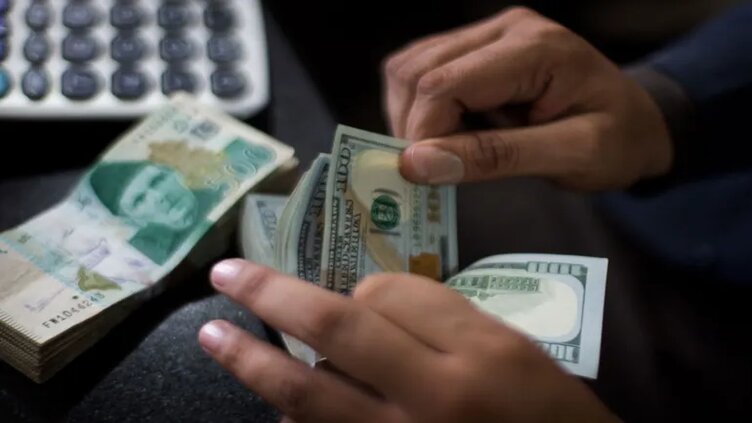Pakistan's rupee plummets as officials relax restrictions: Financial Times

Pakistan
Country in danger of mimicking Sri Lanka where reserves dearth caused shortages of critical products
(Web Desk) - Financial Times has warned that Pakistan s rupee has plummeted after the central bank has relaxed restrictions to resurrect bailouts.
It said that in an effort to salvage an IMF bailout Pakistan has abandoned restrictions over its currency exchange rate driving the rupee to a record low as the crisis-hit economy is in danger of collapsing.
Financial Times has said that the rupee was artificially held high in recent months by the central bank of Pakistan, which led to the emergence of a currency black market. However officials removed these restrictions in response to an IMF push to liberalise the currency rate.
According to the central bank, the official banking rate fell by about 10% at Rs255 to the dollar at the conclusion of the day. As Pakistan s foreign reserves diminish, the country s economic predicament has been worse recently.
Airlines and foreign business associations have complained that capital limits put in place to safeguard depleting foreign reserves prevent them from bringing money home.
A more than 12-hour-long countrywide outage that occurred on Monday made the problems worse.
Pakistan s economy is on the verge of collapse and the nation is in danger of mimicking Sri Lanka, where a dearth of foreign reserves caused significant shortages of critical products that ultimately resulted in a default in May, analysts have said.
Late last year, the IMF halted payments under the plan, and according to Pakistani officials, it made liberalising the rupee s exchange rate a requirement for releasing its next funding tranche. "Today, each day counts.
Pakistan s planning minister, Ahsan Iqbal, told the Financial Times that the nation has "dramatically" cut back on imports in an effort to save foreign cash.
To release the next tranche of funding, Sharif s administration has stated that it is dedicated to resuming the IMF agreement. However, the IMF s demand that Pakistan undertake economic changes including raising the price of energy subsidies has failed to break the deadlock between the parties.
The economy and society can t handle the shock or expense of a front-loaded programme, therefore we need a gradual approach. Pakistan is preparing for elections that must be held this year while the economy is in disarray.
Imran Khan, the former prime minister who was dismissed in April but is still very well-liked, is Sharif s biggest rival. Both politicians hold the other responsible for the current economic situation, and Khan is pushing to compel early voting.

